Pros reveal 10 ways to keep pests out of your home this summer
Get ahead of critter issues with our expert guide on the things you can do to stop them getting inside as the weather hots up


Love summer, hate bugs? Luckily, we know 10 ways to keep pests out of your home this season.
Stop flying ants, spiders, roaches, mice and many more unwanted guests getting into your home as the weather hots up and critter colonies get busy. Our expert guide is packed with things you can do now, and action you can continue to take over the summer to keep pests out of your home.
Whilst we can't do anything about your in-laws popping over uninvited, we can help with keeping ants and other bugs you identify firmly out!
10 ways to keep pests out of your home this summer
So you've successfully killed the weeds in your lawn and prepped your patio or balcony ready for warmer weather and BBQs, but have you protected your home, however big or small, against pests?
Our critter control, home maintenance, and cleaning pros have great tips to offer including the steps to action, and product recommendations to help you enjoy a pest-free home all summer.
All prices correct at publication.
1. Seal gaps and cracks
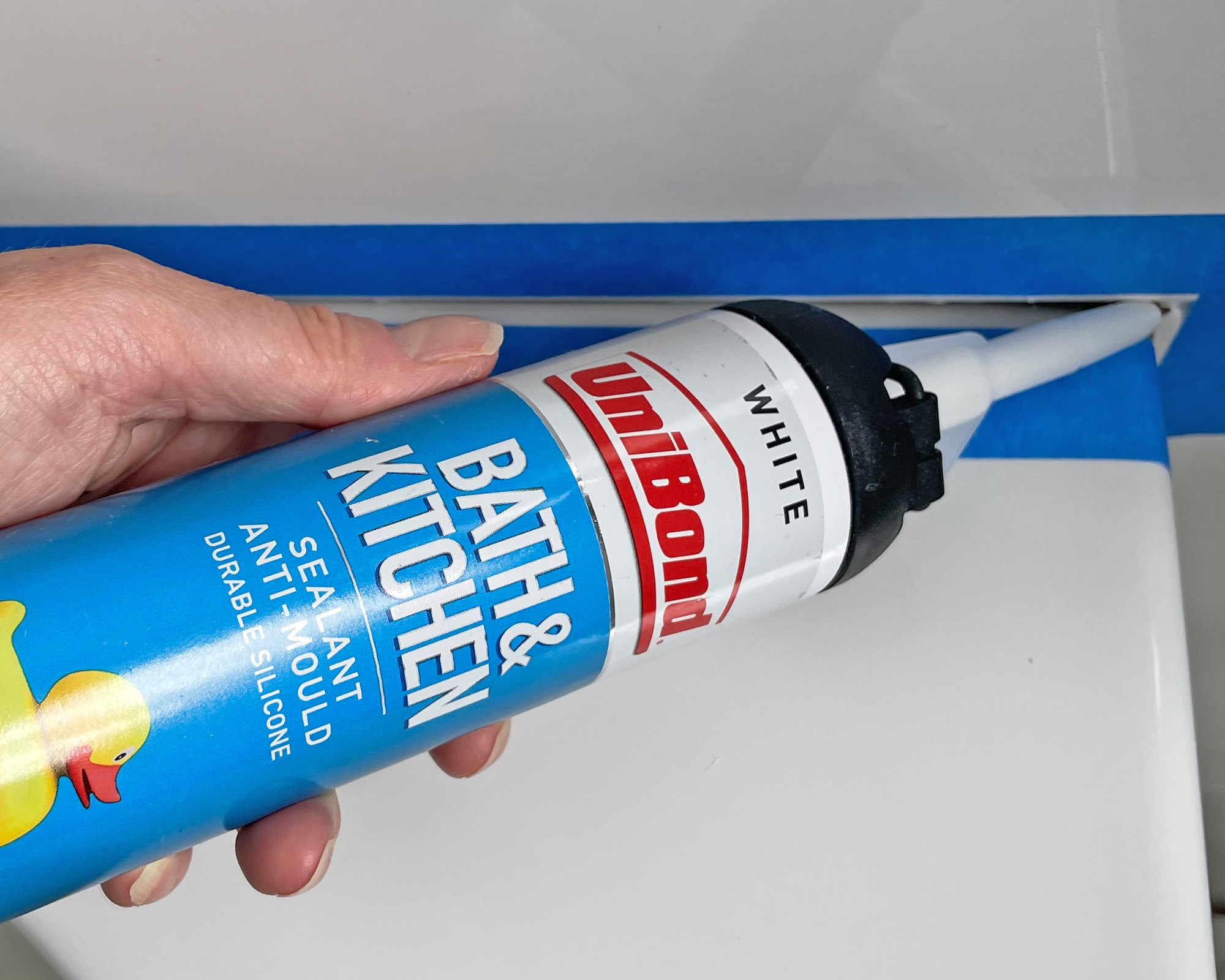
This one is our favorite tips because it's so easy to action and very effective. If you seal up any exterior cracks, holes and gaps, this will reduce the opportunities pests have to sneak into your pad.
Get small space home decor ideas, celeb inspiration, DIY tips and more, straight to your inbox!
Jordan Woolf, owner of Huntsville Roofing Solutions, says preventing entry points can easily deter small pests such as ants, spiders, and even rodents.
"Use caulk or weatherstripping to seal gaps around windows, doors, and other openings. For larger gaps, fill with steel wool before sealing with caulk. Focus on areas where utilities enter the home, as these are common entry points for pests."
This means keeping an extra keen eye where piping, electrics, vents or waste disposal works enter or leave your home.
Brendan Anderson, of Brix Roofing Systems advises, "Look around your home’s exterior for any gaps or cracks, especially around windows, doors, and the foundation. Clean these areas to help the sealant stick better on small gaps (less than 1/4 inch). Use expanding foam or steel wool for bigger gaps."
Brendan's recommendations GE Silicone II Window & Door Caulk, available at The Home Depot, and Great Stuff Pestblock Insulating Foam Sealant, available on Amazon are reliable options for this task. Both items have also been rated an average of 4.5/5 stars by thousands of happy customers.
We recommend Gorilla Silicon Sealant, available on Amazon for its versatility in indoor and outdoor use, and moisture-resistant sealing properties. It also dries clear so it can be used on brick, window sills and anywhere else you need without looking obvious.
Sealing gaps will stop small and large pests getting in, which is useful if you're trying to remove mice from a garage, for example.
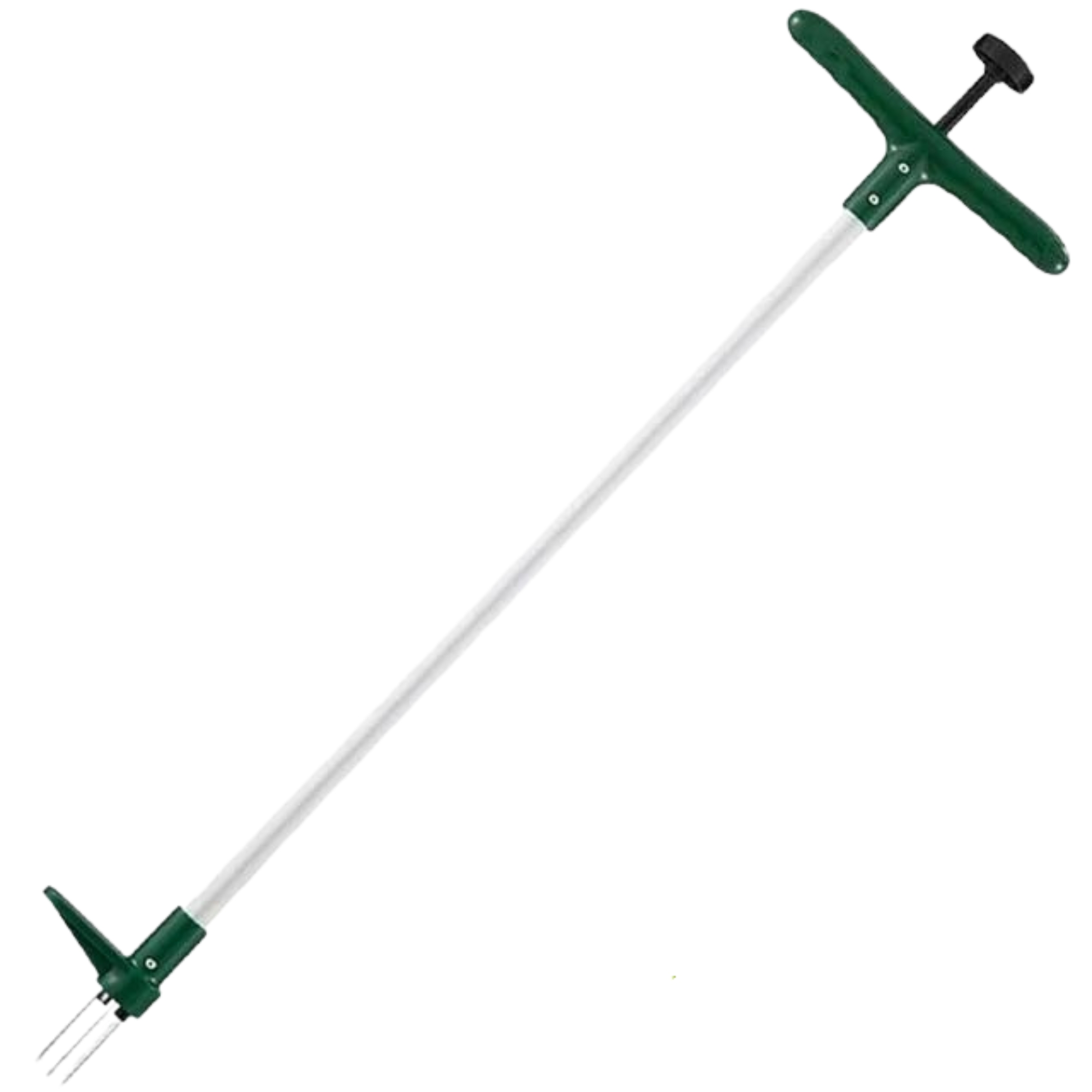
Price: Was $35.99, now $29.99
This long-armed weeder tool will help you avoid achy back and knees by letting you do the job on your feet. The spiky end will pull out most any weed, whilst the ergonomic handle will help avoid slips and give you extra strength to twist the ground. It's made from stainless steel, one of the best outdoor materials for strength and ability to withstand moisture without rusting.

Prices: From $9.99 (pack of two) to $21.49 (pack of 10)
Sizes: Small, medium, and large
Lightweight and created with a sturdy foamed latex coating, COOLJOB Gardening Gloves are a hit when planting. Expect an excellent grip, a stretchy base, and cute colors to boot. I particularly like that these items were made with chemicals that are safer for humans and the environment as certified by OEKO-TEX STANDARD 100.
2. Install mesh screens
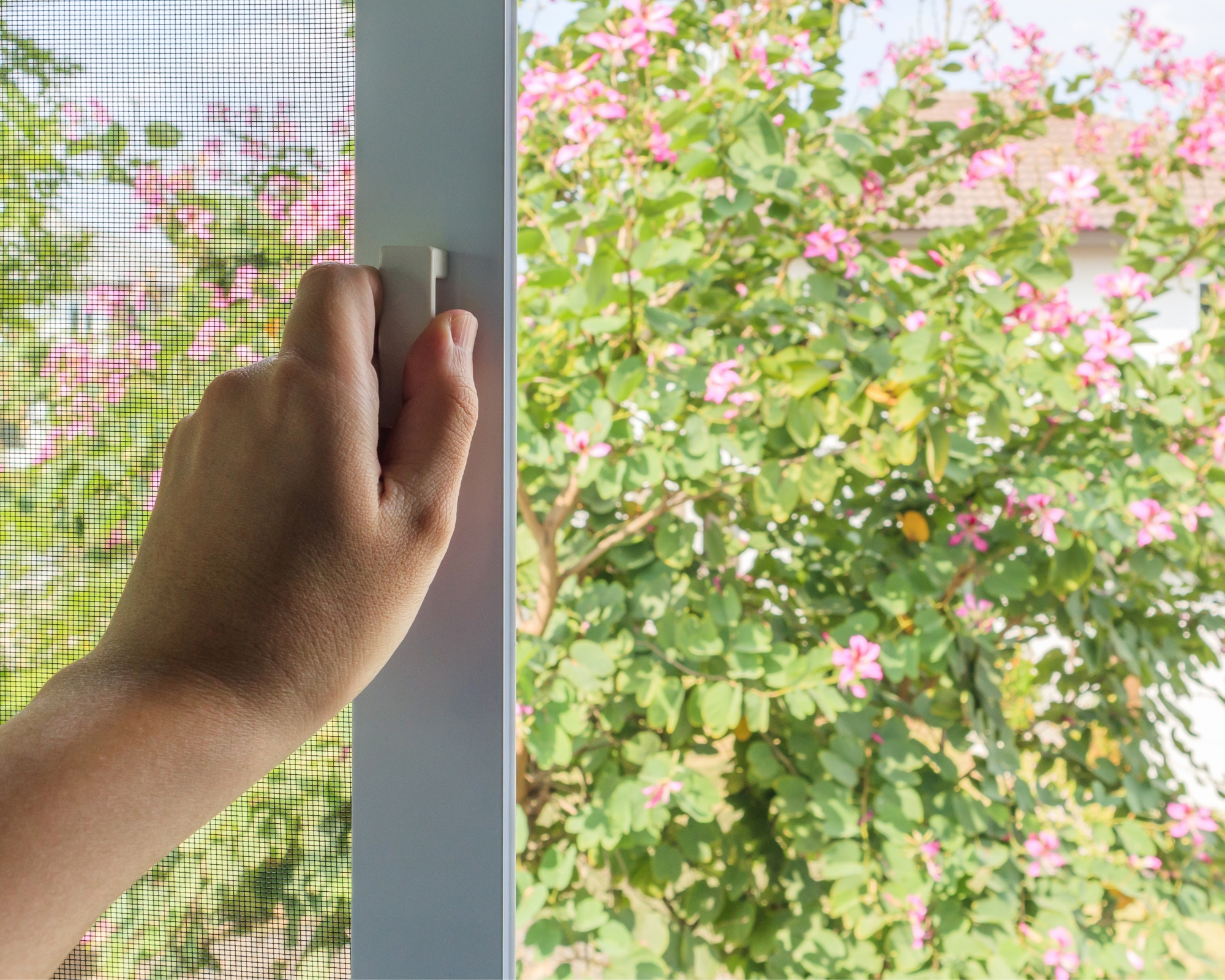
Mesh screens will keep insects like mosquitoes, flies, and larger pests such as squirrels out of your home whilst still letting fresh air flow in. If you have an indoor cat, or a dog that needs supervision in your backyard or balcony, a mesh screen doubles up as a great way to keep your furry friends in.
Jordan recommends fitting mesh screens on all windows and doors and ensuring the mesh size is small enough to block even tiny insects. He adds, "Regularly check the screens for any tears or holes and repair them immediately using a screen repair kit."
I have personally used a white screen mesh with zip closure, that is stuck on with a strip of double sided Velcro tape, on the sliding door that goes into my backyard. It's been on for the last three years and is a lifesaver in the summer to stop pests getting into my home when the lights are on at night and the doors open to let out the heat of the day (my home has no air conditioning).
I highly recommend this option for renters who cannot nail or screw screens on. Whilst I bought mine from Amazon in the UK, the Anti-Mosquito Door Heavy Duty Mesh Curtain with Zip on Amazon USA has exactly the same features as mine and comes in 23 different sizes, and a few colors to match to your aesthetic. I went for white so it didn't darken my small kitchen.
If you're tempted by the magnetic ones, I tried that in my old home and it was fine, but I wouldn't advise it if you have cats like I do who like to hunt mice, voles and frogs and bring them inside... alive! Those furry buddies are smart at figuring out the magnets.
Brendan offers some expert tips on installing your mesh screen.
He says, "Measure your windows and doors. Buy mesh screens (fiberglass or aluminum) that match those measurements. Cut the screens to size with scissors or a utility knife. Use a spline roller to press the screen into the frame and secure it with a spline. Trim any excess screen material. Try the Saint-Gobain ADFORS Premium Window Screen (available on Amazon) and a spline roller tool for a smooth installation."
3. Fix leaks

Prevent moisture attracting pests such as cockroaches, silverfish, ants, and mold-loving insects by fixing any leaks or persistently drippy outdoor taps. Moisture will entice termites and carpenter ants, which both extend their outside colonies indoors by following moisture and setting up satellite colonies inside the wooden structures of your home including in walls, basements, attics and outhouses.
Jordan says, "Regularly inspect plumbing for leaks and repair them promptly, and ensure proper home ventilation to avoid moisture build up. Use a dehumidifier in damp areas such as basements and bathrooms to keep humidity levels low.
We've tried and tested many of the best dehumidifiers here at Real Homes and the General Electric 35-pint Portable Dehumidifier, available at Walmart can be moved around the home where it is needed, but has a small tank size. You can alternatively opt for the Frigidaire FFAD2233W1 Dehumidifier from Amazon which is great for small spaces and has a removable dust filter you can clean.
Brendan adds, "Check your home for leaks, especially in the kitchen, bathroom, and basement. Repair any leaky pipes or faucets right away. Make sure water drains properly around your home to prevent pooling and use a dehumidifier in damp areas."
Brendan recommends using Flex Tape Rubberized Waterproof Tape, available at Walmart) and the hOmeLabs 4,500 Sq. Ft Energy Star Dehumidifier, available from Amazon. The latter has an average customer rating of 4.5/5 and has been rated by 52,700 customers.
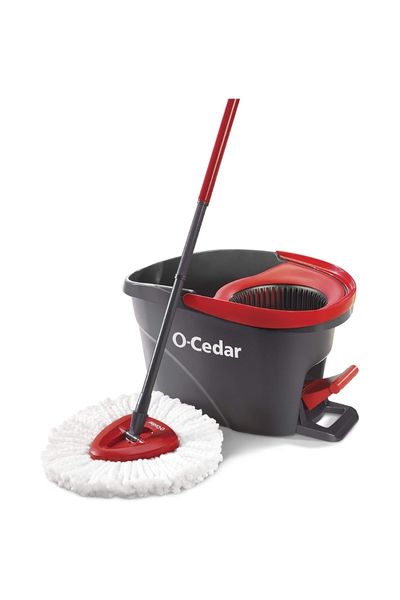
Type: Mop and bucket
Heads: Microfiber
Reusable? Yes
Rated as one of Real Homes' best mops, our reviewer found this mop and bucket duo to be suitable for use on all floor types, easy to wring, didn't require added chemicals in water to slick away dirt, and found the extendable handle useful. It comes with three extra mop heads which we reckon is great value for money. Our reviewer did find it tricky to store but a wall mop holder that'll stick on with adhesive is an easy fix. The foot pedal makes ringing out the mop a cinch.
Real Homes rating: 5/5 stars
4. Store food properly

Avoid attracting pests by keeping food inaccessible.
Brendan says, "Properly storing food outdoors helps prevent attracting pests like raccoons, ants, and rodents. Use airtight containers for food. Vtopmart Airtight Food Storage Containers and Rubbermaid Food Storage Containers are excellent choices."
Clean up crumbs and stains right away. We recommend using white vinegar to clean, as it's versatile and pests hate the smell. A double whammy to protect your home from bugs.
Use white or distilled vinegar, such as Walmart's Heinz All Natural Distilled White Vinegar, and wipe with a clean microfiber cloth. Wells Ye, founder of Fresh Tech Maid, uses equal parts white vinegar and water, then generously spritzes to clean. He previously told Real Homes he recommends the lint-free E-Cloth Window Cleaner Kit from Amazon for a streak-free clean.
Jordan adds, "Ensure pantry items like grains and cereals are sealed properly in airtight containers. Regularly inspect the pantry for signs of pests and clean up any spills immediately."
5. Maintain your yard

Maintain a tidy yard to eliminate hiding spots and breeding grounds for pests.
Jordan says, "Remove debris such as fallen leaves, grass clippings, and piles of wood. Keep the lawn mowed and the garden well-maintained. Properly store outdoor items like toys and gardening tools to reduce potential hiding places for pests."
Piles of wood outdoors are an open invitation for termites and carpenter ants.
6. Use natural repellants
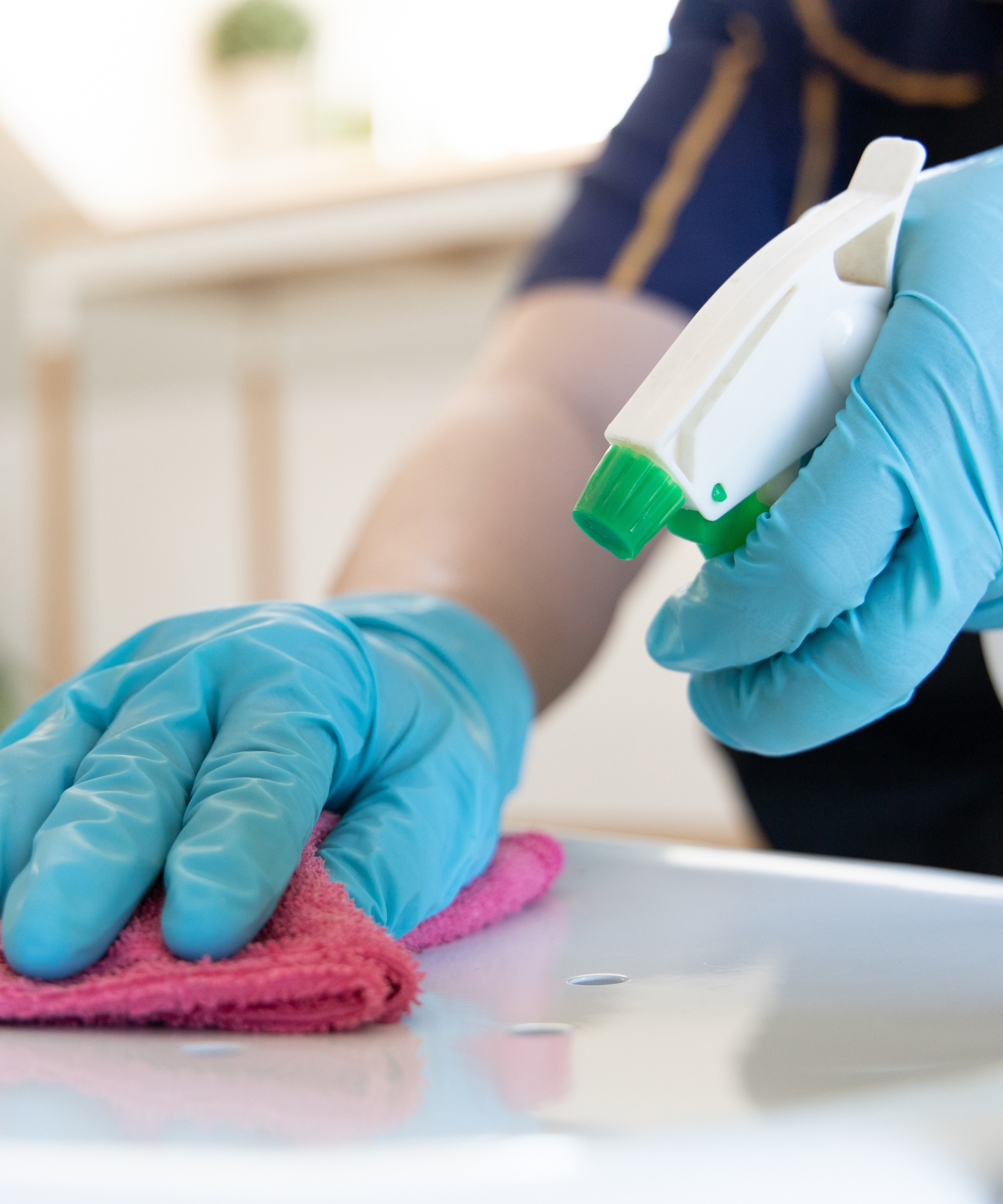
Natural repellents deter pests without the need for harmful or potent synthetic chemicals. The great news is there are many things that repel bugs, and you probably already have them in your kitchen cabinets or around the home.
Brendan says, "Use essential oils like peppermint, eucalyptus, and tea tree oil to repel pests. I like Plant Therapy Essential Oils, available on Amazon. Mix 10-15 drops with water in a spray bottle and apply to entry points.
"Plant herbs like basil, lavender, and mint around your home to naturally repel pests. Use Harris Diatomaceous Earth, available at The Home Depot, around your home’s perimeter to deter crawling insects."
Jordan advises also placing sachets of dried herbs like bay leaves, mint and cloves in the pantry to deter pests as well, since they do not like these scents.
7. Regular garbage disposal
Regular garbage disposal sounds like a no-brainer but it's a great thing to keep on top of in the hotter months especially to avoid attracting pests including rats, mice, and flies.
Jordan says, "Take out the trash regularly and use trash cans with tight-fitting lids. Clean the bins periodically to remove any residue. Consider using outdoor garbage bins that are animal-proof to prevent raccoons and other larger pests from accessing your trash."
Most of the ones we've looked at are very pricey but these smaller animal-proof trash cans from Bearicuda could work well with their screw top lids.
If you can't afford a splurge, Brendan adds, "Keep garbage cans tightly sealed and away from the house using bungee cords or heavy-duty clips to secure trash can lids."
Amazon stocks an array of heavy duty clips you can have delivered to your home within 24 hours, whilst their trash can bands are super too. A trash can cover can avert clever critters and larger animals that like fishing around in your rubbish. Try the Wayfair Suncast Utility Garbage Shed.
8. Outdoor maintenance

Maintaining the exterior of your home will reduce the temptation and opportunity for pests who want to get inside.
Jordan says, "Trim bushes and trees to prevent contact with the house, and eliminate standing water by cleaning gutters and ensuring proper drainage. Store firewood away from the house and off the ground to deter termites and rodents.
Brendan reckons regular roof and gutter maintenance should go on your list of outdoor tasks.
"Keeping your roof and gutters in good shape prevents pests like birds, squirrels, and insects from nesting," he says. "Clean gutters regularly to avoid debris buildup. Inspect your roof for damaged shingles or tiles and fix them promptly. Install gutter guards to keep leaves and pests out. Trim tree branches away from your roof to reduce access points for pests."
Brendan highly recommends the Raptor Gutter Guard available from Amazon for its contractor grade steel (don't worry, it's DIY-friendly) and the DeWalt 20V Max Cordless Drill Driver Kit for this kind of outdoor maintenance.
9. Keep things clean indoors

To keep pests out of the house, you'll need to give them less reason to come in.
Prevent ick-inducing pests such as ants, cockroaches, and mice by eliminating food sources indoors.
Jordan says, "Clean up spills and crumbs immediately, and vacuum regularly, especially in areas where food is consumed. Pay special attention to kitchen appliances like toasters and microwaves where crumbs can accumulate unnoticed."
Ants, cockroaches, mice, and many other small pests head inside to evade heat and when they find a food source, quickly set up shot and call their colony mates in with their scent trails.
Brendan adds, "Sweep and vacuum floors regularly, wipe down countertops and dining areas after meals and clean the trash can periodically."
Our best vacuum guide is packed with great picks, many tried and tested by us, whilst Brendan's recommendations for the job are the Dyson V11 Torque Drive Cordless Vacuum, available on Best Buy, and Lysol Kitchen Pro Antibacterial Cleaner, which you can buy in a double pack at Walmart.
10. Install door sweeps
Finally, installing door sweeps will block easy points for pests who can squeeze in under doors.
Jordan says, "Install door sweeps on all exterior doors to seal the gaps at the bottom. Ensure the sweep is properly fitted to block any possible entry. Check the sweeps regularly for wear and tear and replace them as needed."
Most hardware stores carry a range of door sweeps, including Lowe's, such as these brown door sweeps installed with screws. There are also white door sweeps that slide on at Lowe's, and sweeps that stick on with adhesive.
Meet the experts

Jordan Woolf is owner and roofer at Huntsville Roofing Solutions and knows the importance of a strong defense system for your home against unwanted pests. He is a dedicated and experienced entrepreneur with over 20 years of experience in the industry, and has built a reputation for delivering high-quality roofing solutions that cater to residential and commercial clients across Alabama.

Brendan is a second-generation roofer, and worked with his father in the industry since he was 15. From an early age, he knew he wanted to run his own business and learned how to navigate and earn the trust and respect of much older and seasoned contractors and business owners.
By implementing these 10 tips, you can significantly reduce the chance of pests traipsing inside your home and enjoy your summer to the max. When you've knocked out the pest parade, learn how to entice some much more magical hummingbirds to your backyard or balcony and enjoy these summer-loving creatures. Or, if you have bugs outside, these plants will repel pests.

Hi! I'm editor of Real Homes. I've been a senior journalist and editor for national magazines and newspapers for 16 years, specializing in consumer, real-life, and lifestyle articles. I have a BA in English Language and Communication, mentor journalists, and I’m also founding editor of Lacuna Voices, an independent digital platform. I love to cook, add character to my newly-built home, try my hand at DIY projects, keep my collection of plants alive, and make memories with my little family of three. For Real Homes, I specialize in articles on pest control, DIY, declutterring and cleaning, interviewing experts daily for their top tips and product recommendations.